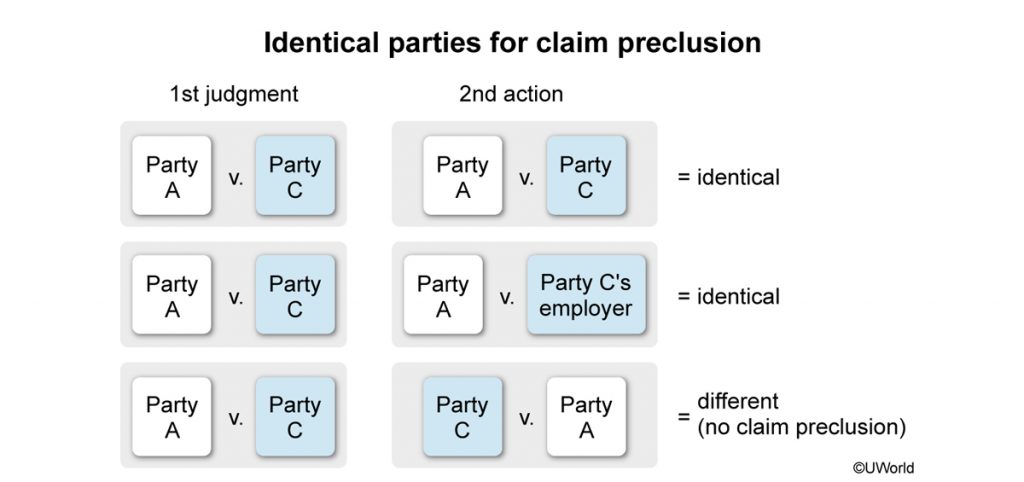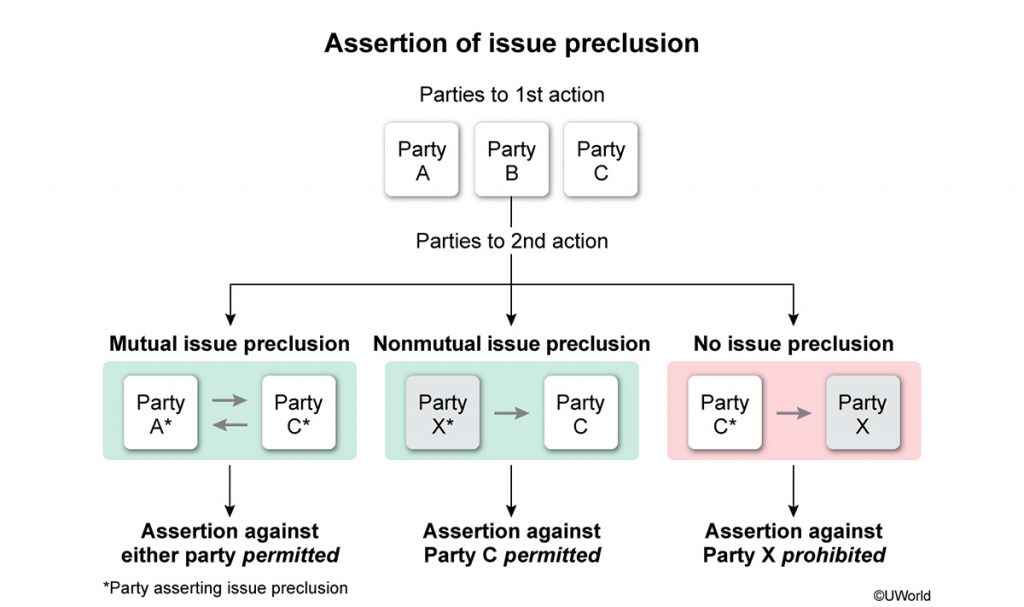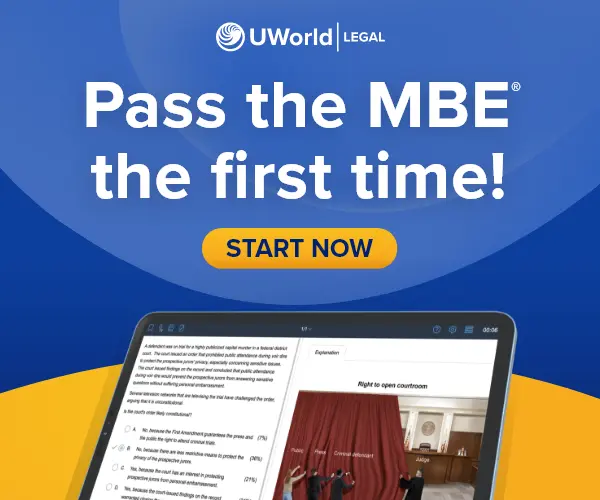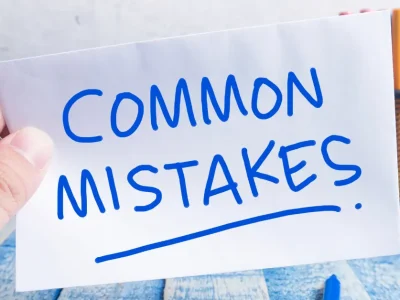Res judicata. Collateral estoppel. Both terms are fancy ways to refer to the two preclusion doctrines tested on the MBE exam, which prevent a party from raising previously decided claims or issues in a subsequent action. If these doctrines are precluding you from getting a good night’s sleep, this quick tip will help you rest a bit easier tonight.
RES JUDICATA = CLAIM PRECLUSION
Claim preclusion prohibits identical parties from relitigating identical claims after the entry of a valid final judgment on the merits. Claims are identical when they arise from the same transaction or occurrence and could have been raised in the first action. Parties are identical if they or their privies (e.g., a corporate defendant’s employees) occupy the same roles in both actions. This is illustrated in the following graphic:

COLLATERAL ESTOPPEL = ISSUE PRECLUSION
In contrast, issue preclusion prohibits the relitigation of identical issues that were:
- actually litigated and submitted to the trier of fact for determination in the first suit (not merely stipulated, conceded, or admitted) and
- essential because they were a necessary component of the decision in that suit (e.g., in a negligence action, a finding that the defendant breached a duty of care).
Collateral estoppel is mutual when it is asserted by parties from the first action and nonmutual when asserted by nonparties from the first action. In either case, it can be used defensively by a defendant to avoid relitigating an issue or asserted offensively by a plaintiff to establish an issue—but only against a party to the first action. Issue preclusion cannot be asserted against a nonparty to the first action because that would deprive the nonparty of his/her right to a full and fair litigation. This is illustrated in the following graphic:

Now that you can keep the preclusion doctrines straight in your mind, you’ll be able to breeze through any preclusion question you encounter on the MBE! Use this tip when answering practice questions in the UWorld MBE QBank. Access our QBank or purchase a subscription.




